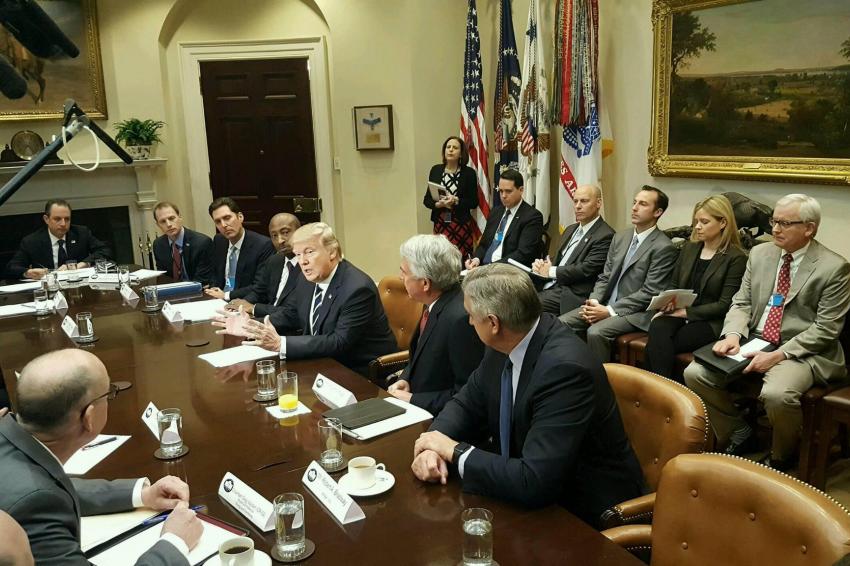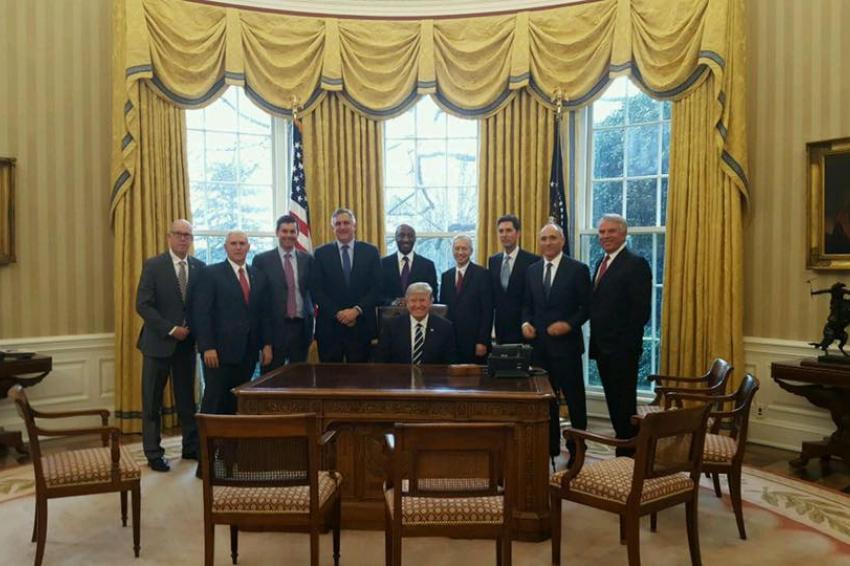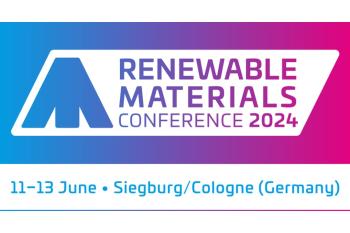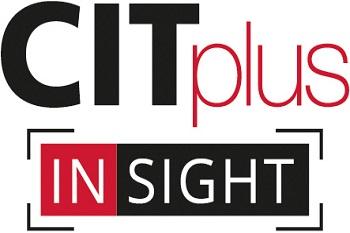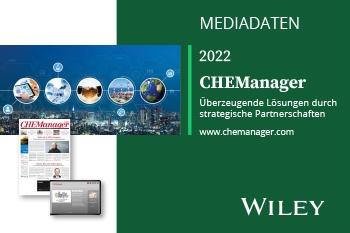Trump Discusses Issues With Drugmakers
01.02.2017 -
In a meeting at the White House on Jan. 31, new US president, Donald Trump, held out both a carrot and a stick to pharmaceutical producers. The industry will “have to “get prices down,” he told company executives, while at the same time hinting at plans to reduce regulation to facilitate faster approvals of new drugs and to allow companies to bring jobs back to the US.
"You folks have done a tremendous job but we have to get prices down," Trump told the assembled executives from American drugmakers such as Merck & Co, Johnson & Johnson, Celgene, Amgen, Eli Lilly as well as Switzerland’s Novartis and the PhRMA trade group, according to reports, adding: “We’re going to be cutting regulation at a level nobody's ever seen before.”
"You can’t get approval for the plant and then you can’t get approval to make the drug, other than that you’re doing fantastic.” Trump is quoted as saying, before remarking that “US drug companies have produced extraordinary results for our country, but the pricing has been astronomical for our country.”
While admonishing the industry to “lower your prices, deliver better innovation and move your companies back" to the US, Trump again took aim at drugmakers that manufacture overseas, although many observers said it wasn’t clear what he meant by “our trade policy will prioritize that foreign countries pay their fair share for US-manufactured drugs, so our drug companies have greater financial resources to accelerate development of new cures." Trump has already proposed a 20% "border tax" on drug imports.
At a press conference earlier in January, Trump had said the pharmaceutical industry, which “has a lot of lobbies, a lot of lobbyists and a lot of power,” is “getting away with murder.” At the same event, the then-president-elect also suggested introducing “competitive bidding” for government drug purchasing, and later in an interview with Time magazine called for Medicare, the elder care program, to be given the power to negotiate prices.
At the Jan.31 meeting, the president also urged pharmaceutical industry leaders to hire more US personnel, to which they reportedly replied that they were hiring, but given tax breaks they might hire more. A number of them, including Lilly and Amgen, have recently cut US jobs.
Other takeaways from the meeting were that Trump promised to speed up drug development and end "global freeloading" by countries that use price controls to keep their drug spending down. "We're going to be changing a lot of the rules," he said, addressing reporters. "Foreign price controls reduce the resources of American drug companies to finance drug and R&D innovation. It's very unfair to this country."
"Our trade policy,” the president said, “will prioritize that foreign countries pay their fair share for US-manufactured drugs, so our drug companies have greater financial resources to accelerate development of new cures, and I think that's so important. "Right now it's very unfair what other countries are doing to us."
According to a pharmaceutical market report published last year by the US Department of Commerce, most drugs consumed in the US are also made there, while about a quarter – valued at $86 billion in 2015 – are imported. The lion’s share of imports come from Ireland, Germany, Switzerland, Israel and India. The US also exported pharmaceuticals worth $47 billion in 2015, with Japan, Belgium, Switzerland, the UK and Germany taking the most.
After the meeting, which most of those present described as “positive” or “productive,” some released statements or talked to media. Stephen Ubl, president of PhRMA, said the industry “takes seriously the concerns raised about the affordability and accessibility of prescription medicines, and we have expressed our commitment to working with the administration to advance market-based reforms.” The current system, he said, “needs to evolve to enable the private sector to lead the move to a value-driven health care system."
Celgene CEO Robert Hugin told the newspaper Washington Post that drugmakers were “excited” to work with the president. “The changes he is proposing are ones I think are going to be great for the country and consumers,” he commented.
Kenneth Frazie, CEO of Merck & Co, told reporters after the meeting: "The President is very much focused on how we can actually do better for patients, giving them more choice, helping them to deal with the medical bills that they have in a way that also stimulates innovation.”
Remarks by Joe Jimenez, CEO of Novartis, at his company’s annual results press conference last week, were more to the point. He said he would like to propose his own solution for drug pricing in a face-to-face with the president. This, he said, would focus on “pay-for-performance deals that peg drug costs to their real-world result.”
At this week’s meeting with drugmakers, Trump touched on plans for the US Food and Drug Administration (FDA) to speed up new drug approvals, but commentators said it was not clear how this would work when the new administration has frozen hiring by federal agencies. Another executive order by the president – one of several during his first week in office – stipulates that agencies remove two regulations for each new one implemented. He said also that he was close to appointing a “fantastic” person to head the FDA.
Some experts on the drug approval process were critical of Trump’s plans. His “horrifying proposal reflects utter ignorance about the FDA.’s essential role in protecting public health and once again demonstrates his commitment to placing corporate profits above protecting the safety of the American people,” Michael Carome, director of Public Citizen’s health research group, told the newspaper New York Times.
Carome explained that many of the regulations had been set up by Congress so they could not easily be removed and, if they were removed, new statutes and new laws would have to be passed. Others said the agency had already loosened the approval process for new drugs in recent years, with questionable benefit.
David Vladeck, a professor at the Georgetown University Law Center in Washington, told the Washington Post that removing regulatory powers “will cripple the FDA’S ability to do anything other than regulate by non-binding guidance documents.” To hollow out the agency’s authority by forbidding it from dealing with emerging issues through new regulations will jeopardize consumers and threaten the reputation of the agency around the world, he said. In response to Trump’s comments about accelerating drug approval, Vladeck asked rhetorically whether consumers wanted the FDA to rely on “comic book versions” of drug applications.

